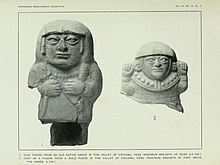Supernatural theme by R2_JOE
Download: Supernatural.p3t

(13 backgrounds)

| Part of a series on |
| Anthropology of religion |
|---|
 |
| Social and cultural anthropology |
| Part of a series on the |
| Paranormal |
|---|
Supernatural refers to phenomena or entities that are beyond the laws of nature.[1] The term is derived from Medieval Latin supernaturalis, from Latin super- (above, beyond, or outside of) + natura (nature).[1] Although the corollary term "nature" has had multiple meanings since the ancient world, the term "supernatural" emerged in the Middle Ages[2] and did not exist in the ancient world.[3]
The supernatural is featured in folklore and religious contexts,[4] but can also feature as an explanation in more secular contexts, as in the cases of superstitions or belief in the paranormal.[5] The term is attributed to non-physical entities, such as angels, demons, gods, and spirits. It also includes claimed abilities embodied in or provided by such beings, including magic, telekinesis, levitation, precognition, and extrasensory perception.
Etymology and history of the concept[edit]
Occurring as both an adjective and a noun, antecedents of the modern English compound supernatural enter the language from two sources: via Middle French (supernaturel) and directly from the Middle French's term's ancestor, post-Classical Latin (supernaturalis). Post-classical Latin supernaturalis first occurs in the 6th century, composed of the Latin prefix super- and nātūrālis (see nature). The earliest known appearance of the word in the English language occurs in a Middle English translation of Catherine of Siena's Dialogue (orcherd of Syon, around 1425; Þei haue not þanne þe supernaturel lyȝt ne þe liȝt of kunnynge, bycause þei vndirstoden it not).[6]
The semantic value of the term has shifted over the history of its use. Originally the term referred exclusively to Christian understandings of the world. For example, as an adjective, the term can mean "belonging to a realm or system that transcends nature, as that of divine, magical, or ghostly beings; attributed to or thought to reveal some force beyond scientific understanding or the laws of nature; occult, paranormal" or "more than what is natural or ordinary; unnaturally or extraordinarily great; abnormal, extraordinary". Obsolete uses include "of, relating to, or dealing with metaphysics". As a noun, the term can mean "a supernatural being", with a particularly strong history of employment in relation to entities from the mythologies of the indigenous peoples of the Americas.[6]
History of the concept[edit]
The ancient world had no word that resembled "supernatural".[3] Dialogues from Neoplatonic philosophy in the third century AD contributed to the development of the concept the supernatural via Christian theology in later centuries.[7] The term nature had existed since antiquity, with Latin authors like Augustine using the word and its cognates at least 600 times in City of God. In the medieval period, "nature" had ten different meanings and "natural" had eleven different meanings.[2] Peter Lombard, a medieval scholastic in the 12th century, asked about causes that are beyond nature, in that how there could be causes that were God's alone. He used the term praeter naturam in his writings.[2] In the scholastic period, Thomas Aquinas classified miracles into three categories: "above nature", "beyond nature", and "against nature". In doing so, he sharpened the distinction between nature and miracles more than the early Church Fathers had done.[2] As a result, he had created a dichotomy of sorts of the natural and supernatural.[7] Though the phrase "supra naturam" was used since the 4th century AD, it was in the 1200s that Thomas Aquinas used the term "supernaturalis" and despite this, the term had to wait until the end of the medieval period before it became more popularly used.[2] The discussions on "nature" from the scholastic period were diverse and unsettled with some postulating that even miracles are natural and that natural magic was a natural part of the world.[2]
Epistemology and metaphysics[edit]
The metaphysical considerations of the existence of the supernatural can be difficult to approach as an exercise in philosophy or theology because any dependencies on its antithesis, the natural, will ultimately have to be inverted or rejected. One complicating factor is that there is disagreement about the definition of "natural" and the limits of naturalism. Concepts in the supernatural domain are closely related to concepts in religious spirituality and occultism or spiritualism.
For sometimes we use the word nature for that Author of nature whom the schoolmen, harshly enough, call natura naturans, as when it is said that nature hath made man partly corporeal and partly immaterial. Sometimes we mean by the nature of a thing the essence, or that which the schoolmen scruple not to call the quiddity of a thing, namely, the attribute or attributes on whose score it is what it is, whether the thing be corporeal or not, as when we attempt to define the nature of an angle, or of a triangle, or of a fluid body, as such. Sometimes we take nature for an internal principle of motion, as when we say that a stone let fall in the air is by nature carried towards the centre of the earth, and, on the contrary, that fire or flame does naturally move upwards toward firmament. Sometimes we understand by nature the established course of things, as when we say that nature makes the night succeed the day, nature hath made respiration necessary to the life of men. Sometimes we take nature for an aggregate of powers belonging to a body, especially a living one, as when physicians say that nature is strong or weak or spent, or that in such or such diseases nature left to herself will do the cure. Sometimes we take nature for the universe, or system of the corporeal works of God, as when it is said of a phoenix, or a chimera, that there is no such thing in nature, i.e. in the world. And sometimes too, and that most commonly, we would express by nature a semi-deity or other strange kind of being, such as t
